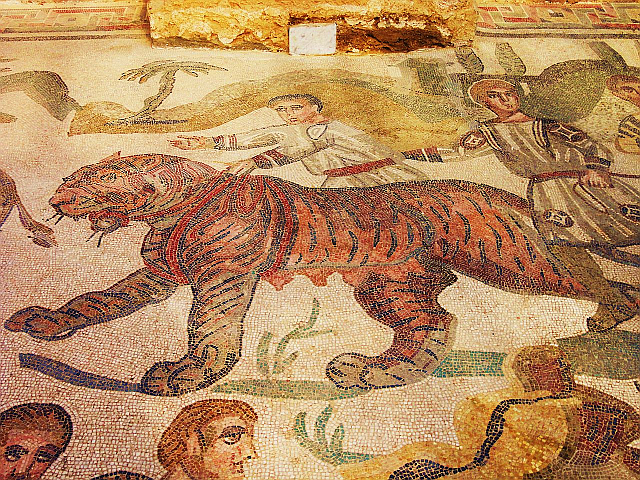. . . out of Norse mythology and archaic names (Danish: solhunde (sun dog), Norwegian: solhund (sun dog), Swedish: solvarg (sun wolf)), . . . constellations of two wolves hunting the Sun and the Moon, one after and one before, may be a possible origin for the term. Sun Dog
As soon as Adam begins to speak in Paradiso 26, he wields a very fancy, learned Greek term, twice: parhelion -- image, copy, equal -- of the sun:
Indi spirò: Sanz' essermi proferta da te,
la voglia tua discerno meglio
che tu qualunque cosa t'è più certa;
perch' io la veggio nel verace speglio
che fa di sé pareglio a l'altre cose,
e nulla face lui di sé pareglio."
Then breathed: "Without thy uttering it to me,
Thine inclination better I discern
Than thou whatever thing is surest to thee;
His claim to knowledge is exactly like that of Cacciaguida, Beatrice and others in Paradise - "I know your thoughts better than you do," because the interlocutor is looking directly into the mind of God - the mirror that cannot be mirrored.For I behold it in the truthful mirror,
That of Himself all things parhelion makes,
And none makes Him parhelion of itself. (Par. 26: 103-108)
 |
| Photo of an actual parhelion - or "sundog" |
There is nothing hackneyed in Dante's presentation of the first Man. No one else would have approached Adam in this way. First, the insistent recurrence of "firstness" - primaia - marks this passage as concerned with the question of what it means to be "number one" - how to us humans, it is simply unacceptable to be number two. At the root of Adams trapassar, there is this moment of negation - YOU are not number one, I AM. Milton runs endless variants upon Satan's negation, and Adam's.
Dante quietly raises the issue within an allusive passage that begins with the sun and parahelions. Whatever else one might make of this word here, two things are true - this is a hapax legomenon, except it isn't, because the rare word is used twice in two lines. Its eye-catching uniqueness is immediately undercut by the duplicity of its doubling repetition.
Dante is mimicking the sad lack of language -- the power of ontological origination does not lie within it or us. In the text of medieval astrology, the parhelion was equated with mock suns, also known as sun dogs. These mirrors of the sun were bright, but nothing in comparison with the real deal. We and our words are paltry doppelgangers, mockeries of a Maker whose variety infinitely exceeds our imagination.
If one asks where this deflation of duality occurs in Paradiso 26, the best reply might be, "once Adam opens his mouth -- everywhere." He's a dud. Far from the rhetorical power of Ulysses of Inferno 26, who with a very brief speech ignited an exhausted team to the ends of the Earth (devil take the hindmost), Adam sorts out the difference between gustar del legno and trapassar del segno, echoing his Greek descendant's decision to go beyond the segno of Hercules.
To trapassar il segno is to enter a world of conventional, un-Adamic language:
ché l'uso d'i mortali è come frondaEchoing our ineluctable mortality from the greatest poets -- Homer, Virgil, Horace -- links language not to Prometheus's stolen fire, but to the negation of it. To be human is not to be like Adam's words -- but to be true children of an ephemerality indistinguishable from them.
in ramo, che sen va e altra vene.
The shortcoming of the father of our species is as clear, and as powerful, as the structural ironies visited upon Francesca, Ugolino and other denizens of hell. Adam's transgression brought him the gift of counting. The proportions of Edenic bliss to earthly existence to time in Limbo are not only curiously precise, but tacitly comical. Mosquitoes live longer than Adam in Paradise. "Congratulations on toting that up -- you traded immortality for that?" Something of this grimaces over the scene.
In view of this, the reader needs ask: where is the recuperation of Adam? Where is the theology of the fortunate fall?
Here's one suggestion. With the number play in this canto, Adam is always clear about his, and language's, non-primacy. He might be an animal coverto, but he's hiding nothing.
"Nel monte che si leva più da l'onda,Adam's loss of immortal bliss occurred shortly after the sixth hour of his Day 1, at the moment the second quadrant of the sun's journey begins. His exile occurs at the first hour of the second quadrant -- the one that followed -- "seconda" -- the prim'ora of his bright nativity.
fu'io, con vita pura e disonesta,
da la prim' ora a quella che seconda,
come 'l sol muta quadra, l'ora sesta.”
"Upon the mount that highest o'er the wave
Rises was I, in life or pure or sinful,
From the first hour to that which is the second,
As the sun changes quadrant, to the sixth."
That this echoes the hour of the sun's journey in which the crucial Good Friday act of his (and Dante's) redemption began remains unspoken. Adam omits the inexplicable act of caritas that took him and us beyond the segno of mortality. The father of language has no words for that. One can charitably ask whether any Ulyssean encomium could more adequately convey the primal power of the Word than Adam's reticence.



